VIPsight - 3rd Edition 2020
COMPANIES
Wirecard AG: Everybody talks about Wirecard,

Although there is still a lot of smoke covering the details of what happened, at least one can say that the Financial Times was right that unusual things were going on with Wirecard. The information uncovered so far points into the direction of criminal activities of several people, including members of the Management Board.
Amidst the volumes involved, the case enjoys its share of public attention, and it is discussed from various perspectives, including the usual suspects from politics and lobby groups. Therefore, I am convinced that everything that can be done to uncover what happened and correct mistakes will be done, scapegoats identified and law and order can be expected to be reestablished soon. Except for, well, it looks like two questions need a little more attention:
How could this happen?
Leaving aside the volumes involved, Wirecard is not an isolated event. What happened is a systemic problem of the German financial system and the result of a general lack of responsibility. Or could it be, that BaFin did not know how to address doubts and concerns, but refrained from a clear warning about its limitations? Let´s take a look at the smallest listed company in Germany, KREMLIN AG. In 2016 it turned out that the company had lost control over its assets several years ago, ad hoc-releases and corporate publications where either wrong or misleading, and for several years the company did not even have a managing director. Trading in the shares continued nonetheless, and the auditors issued unqualified audit statements for non-existing accounts for at least two business years. Consequences? Yes, BaFin sent questionnaires. For legal reasons, DPRG could not act, and the prosecutors rummage in this mud even till today without any visible consequences. The way things are, it doesn´t even ring a bell that Wirecard and KREMLIN shared the same notary in 2016. But it should worry about those responsible at BaFin that these problems did not only arise in one large case.
Follow the Money
For obvious reasons, everyone is currently looking for the missing 1.9 bn EUR. But think about the likely fate of Wirecard from the perspective of somebody involved in the dubious transactions. Why would you try to take a share of the 1.9 bn EUR? The risk that the authorities would find this money is far too high. It doesn´t take much mind to take a different and safer path. Secure your share in this money through indirect transactions that cannot be linked to you at first glance. Does anybody look into the short-selling activities in the past years from this perspective?
Commerzbank AG: Everything has it´s Time
 Wirecard currently dominates the news. But somewhere in the past few days, Commerzbank, which recently dropped out of the DAX, sent a call for help. It is not clear to the outside observer whether the announcement made by the bank on July 3rd was this call, or perhaps already the previous letter from Cerberus pushing for a change.
Wirecard currently dominates the news. But somewhere in the past few days, Commerzbank, which recently dropped out of the DAX, sent a call for help. It is not clear to the outside observer whether the announcement made by the bank on July 3rd was this call, or perhaps already the previous letter from Cerberus pushing for a change.
Many investors were shocked when they heard on July 3rd that the Chairman of the Board of Managing Directors and the Chairman of the Supervisory Board would step down. Martin Zielke, the Chairman of the Board of Managing Directors, offered to resign early on the basis of mutual termination of his Board membership if such resignation is in the interest of Commerzbank. On July 8th, the Supervisory Board of Commerzbank has agreed to the mutual termination of the appointment and contract. Mr. Zielke did agree to continue to perform his duties until a successor has been appointed. He will step down from his office at the latest on 31st December 2020. Stefan Schmittmann, the Chairman of the Supervisory Board, has announced to resign from office with effect from August 3rd, 2020.
The timing of the letter from Cerberus and the bank´s subsequent publications probably came as a surprise to most observers, the content, however, less so. Since the strategically and economically disadvantageous takeover of Dresdner Bank, Commerzbank has taken a leisurely path under the care of the German government. A small step here, a little correction there, and from time to time a rebranding of the same thing. The results were a disaster. A course correction was urgently needed. And as it turned out later, the German Finance Ministry maintained close contacts with Cerberus. But the question remains, why only now and not much earlier?
Deutsche Bank AG: For a good Friend a Bank sometimes puts its Hand in the Fire
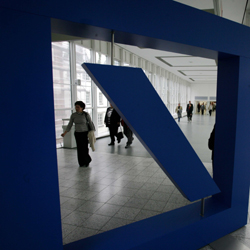 …just to learn later that it can burn. Deutsche Bank also had this experience. But banks are not abstract data and money stores, and they need someone to act for them. All too often, perpetrators can hide behind the walls of the institution without fear of consequences. But times are changing.
…just to learn later that it can burn. Deutsche Bank also had this experience. But banks are not abstract data and money stores, and they need someone to act for them. All too often, perpetrators can hide behind the walls of the institution without fear of consequences. But times are changing.
In early July the New York Times informed that the New York Department of Financial Services and Deutsche Bank agreed that the bank shall pay a 150 million USD fine for its dealings with Mr. Epstein, etc. Epstein is a sex criminal and financier, and Deutsche Bank was one of his financial enablers. The article quoted the department´s statement that Mr. Epstein`s bankers “created the very real risk” that payments through the bank “could be used to further or cover up criminal activity and perhaps even to endanger more young woman”. Linda A. Lacewell, the department´s superintendent, summed it up as follows: “Despite knowing Mr. Epstein´s terrible criminal history, the bank inexcusably failed to detect or prevent millions of dollars of suspicious transactions”.
On July 13th, the New York Times added important information. According to the paper, Deutsche Bank executives approved Mr. Epstein as a client in 2013 and then kept working with him, even though employees worried in early 2015 in internal communications about Mr. Epstein about the fact that “40 underage girls had come forward with the testimony of Epstein sexually assaulting them”. Deutsche Bank declined to publicly identify any individuals involved, and the authorities didn´t demand it. However, the New York Times claims that based on descriptions of the employees in the consent order and interviews with current and former Deutsche Bank officials, it was able to identify nearly every person anonymously described in the order. Furthermore, the paper stated that at least one high-ranking executive remained in her position: Jan Ford, the bank´s head of compliance in the Americas.
Interesting. How does Deutsche Bank intend to improve its reputation if it continues to employ people with such a track record, and is it really necessary that the costs fall entirely on shareholders?
Airbus SE: Is the Deck now clean?
 Airbus and Boeing have been throwing stones at each other for many years. The main war zone is allegations of allegedly unclean trading and subsidy practices. Therefore, the EU and the US have interfered regularly in these processes. More recently, however, it became apparent that Boeing´s management was not up to the task and massive strategic errors have maneuvered the company into difficult waters. In contrast, Airbus has systematically worked up deficits in the past few years.
Airbus and Boeing have been throwing stones at each other for many years. The main war zone is allegations of allegedly unclean trading and subsidy practices. Therefore, the EU and the US have interfered regularly in these processes. More recently, however, it became apparent that Boeing´s management was not up to the task and massive strategic errors have maneuvered the company into difficult waters. In contrast, Airbus has systematically worked up deficits in the past few years.
Another important milestone was reached this month to deal with the difficult past. Airbus announced that it has reached an agreement with governments of France and Spain to make amendments to the A350 Repayable Launch Investment (RLI) contracts so that it no longer qualifies as subsidies. This step means that after 16 years of litigation at the World Trade Organisation (WTO), this is the final step to end a long-standing dispute.
Airbus even claims that it removes any justification for US tariffs imposed by the United States Trade Representative (USTR) and the company considers itself in complete compliance with all WRO rulings. The move was welcomed by the EU amidst the expectation that the US would lift the punitive tariffs on EU goods amidst the compliance of Airbus in this case. Investors shouldn´t relax yet, though. The US administration has moved slowly in recent years. While this is primarily a corporate governance problem in the US, it is now a problem for Airbus and its investors as well. What is more, Boeing is considered to be a cornerstone of the US economy. While after 16 years Airbus found a way out of a dead-end, Boeing´s options for action currently seem to be rather limited despite the EU´s WTO action against Boeing still running. Investors should therefore not have too great expectations until the US elections.
RHÖN-KLINIKUM AG: The Takeover Battle is over
 The fierce struggle for control over RHÖN-KLINIKUM is over. A lot was at stake for everyone involved, not least the future strategic positioning of their own. The decisive phase was the weeks before the Extraordinary General Meeting of shareholders, and the meeting itself.
The fierce struggle for control over RHÖN-KLINIKUM is over. A lot was at stake for everyone involved, not least the future strategic positioning of their own. The decisive phase was the weeks before the Extraordinary General Meeting of shareholders, and the meeting itself.
The anomalies begin with the fact that there were two requests to convene the meeting. RHÖN-KLINIKUM invited shareholders at the request of the two shareholders B. Braun Melsungen AG (April 18th) and Asklepios Kliniken GmbH & Co KGaA (April 20th), who called for this meeting to be convened independently of each other in connection with the voluntary public takeover offer published by Asklepios. Hence, the Board of Management of RHÖN-KLINIKUM was placed between two chairs. On April 27th, 2020, the Board decided to allow in full the request made by Asklepios, and in part the request by B. Braun, as regards the organization and agenda of the meeting.
B.Braun invoked the local court in Schweinfurt with several matters related to the meeting, including authorizing the convening of the EGM, the addition of additional items to the agenda of the meeting, and asking the court to determine the chairman of the meeting. The local court confirmed the position of RHÖN-KLINIKUM, however, and an appeal to the higher regional court by B. Braun failed.
The agenda of the extraordinary shareholders´ meeting on June 3rd, 2020, comprised a discussion and where appropriate resolution on the takeover offer of Asklepios, a proposal to raise the quorum for AGM-decisions to a three-quarters majority, and several votes on members of the Supervisory Board. After all, this meeting was more about information rather than decision making, since it allowed the parties to measure their strength. On June 17th, 2020, B. Braun informed via press release that it accepted the voluntary public takeover offer by Asklepios and submitted its shares in RHÖN-KLINIKUM.
thyssenkrupp AG: Who scared this Flock of Sheep?
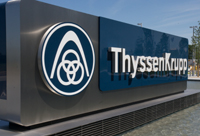 July 17th, 2020, is a day the investor relations team of thyssenkrupp will probably not forget so quickly. In the German market, the story of the day was the “news” that the company faces a deep loss in Q3 due to coronavirus effects. According to the press reports, this information was disclosed in a letter of thyssenkrupp to its employees. The sensation received considerable media. Consequently, the shares tanked in an otherwise positive market environment. At some point, thyssenkrupp shares even lost 2.5%.
July 17th, 2020, is a day the investor relations team of thyssenkrupp will probably not forget so quickly. In the German market, the story of the day was the “news” that the company faces a deep loss in Q3 due to coronavirus effects. According to the press reports, this information was disclosed in a letter of thyssenkrupp to its employees. The sensation received considerable media. Consequently, the shares tanked in an otherwise positive market environment. At some point, thyssenkrupp shares even lost 2.5%.
But wait a minute, did you notice the audience? The letter was addressed to employees, not investors, analysts, or financial journalists. But wouldn´t you think that investors should have received this news first? So didn´t investor relations address shareholders properly (i.e. timely), or what else happened here?
I´m not sure if every journalist would like to hear the answer, but here it is. Let´s go back for a few weeks. Mid-May would be the right timing when thyssenkrupp informed about the Q2 data and business development. And of course, that includes the outlook for the following quarter. Not everyone will remember the details disclosed at the time to analysts, journalists, and investors. But the internet can help to refresh memories.
For example, we can still find the presentation “newtk and Q2 FY 2019/20 Facts and Figures June 2020” here: https://d2zo35mdb530wx.cloudfront.net/_binary/UCPthyssenkruppAG/de/investoren/berichterstattung-und-publikationen/link-2020602_Charts-on-Q2_19_20_Presentation_June_FINAL.pdf
No scroll down to page 20, and you´ll find the Q3 outlook information as follows: “In Q3 – given the currently unforeseeable effects of the pandemic on demand and supply chains and depending on the speed of production resumption by our customers – a loss in the high 3-digit million EUR range is likely and up to a good 1 bn EUR cannot be ruled out.”
I guess it would be unfair to blame the delayed response by some media on COVID, wouldn´t it?
Linde plc: Exceptions prove the Rule
With the recent closures of consulates, relations between China and the US have reached a new low. This is not a conducive climate for economic cooperation, not at all. A current initiative from Linde is therefore all the more surprising. In July, the company, that emerged from the merger of Praxair and the German Linde AG, surprised market participants with two new initiatives towards the Chinese market.
Linde and China National Offshore Oil Corporation´s subsidiary, CNOOC Energy Technology & Services, announced the intention to jointly develop the hydrogen energy industry in China. The partners will explore the option to invest in hydrogen and filling facilities, and further the use of hydrogen in industrial applications, particularly mobility. While Linde expects that the partners will leverage the complementary strengths and work towards a more sustainable. Low-carbon future for China, CNOOC is looking forward to collaborating with Linde´s “industry-leading expertise in hydrogen and hydrogen refueling technology”. I couldn´t have put that better.
Another cooperation with a Chinese company was announced a week earlier. Linde signed a Memorandum of Understanding with Beijing Green Hydrogen Technology Development Co., Ltd., a subsidiary of China Power International Development Ltd, to jointly promote the application and development of green hydrogen in China. The partners plan to collaborate on a variety of green hydrogen initiatives, including hydrogen technology research and development, and the implementation of green hydrogen mobility solutions during China´s inaugural hosting of the 2022 Winter Olympics.
That reads interesting at first glance. But the main obstacle for the success of the initiatives will probably be found in the political environment rather than at the business level.
MTU Aero Engines AG: Everything stays the same
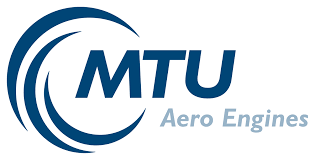 The German language is known to be precise, but also complicated. Here´s an example:
The German language is known to be precise, but also complicated. Here´s an example:
- Alles bleibt beim alten (everything stays the same)
- Alles bleibt beim Alten (everything stays with the old man).
Google translate doesn´t even realize the small difference, and the pronunciation is identical. But even if you know the different meanings, there are occasions where one cannot assign the meaning of a publication. A perfect example of such a dilemma is a recent Ad hoc-release by MTU. Mid-June, the company informed that Klaus Eberhardt will continue to lead the Supervisory Board. This was decided unanimously by the Board.
Well, let´s see. The purpose of an Ad hoc-release is to disseminate information that has not been available to the public yet, and which potentially might trigger a relevant share price movement caused by actions (buy or sell) of investors.
Accepted, this information was new to the market, but which investors will buy or sell shares on a larger scale? Perhaps the reason for the Board decision might help to find an answer to this question. “Maintaining continuity at the helm of the Supervisory Board is a response to the special challenges by the coronavirus crisis.” Sounds fine to me. But this argument would only be valid if the response is adequate to the challenges. One can only speculate what kind or specific challenges arise by the coronavirus crisis, that required an ad hoc-release regarding this decision.
At the same meeting, the news goes on, the Supervisory Board also decided unanimously to raise the previously valid age limit for its members in general to 75. This is a forward-looking decision. We all tend to get older on a year-by-year basis and early retirement is not everyone´s cup of tea. The release used different wording, though: “Given a general increase in life expectancy, this step will contribute to being able to secure valuable expertise and experience…”.
In an attempt to apply the aforementioned experience, the release closes with the following statement: “The Annual General Meeting of MTU Aero Engines AG will be held virtually on August 5, 2020. Re-election of Eberhardt is not necessary, since his Supervisory Board mandate lasts until 2023.”
LEG Immobilien AG / TAG Immobilien AG: The little ones are always hit a little harder
When you open the TAG investor relations pages on the TAG website, the first page provides “five reasons to invest”. The presentation is clear and straight: This is the stock you should by. Nowadays, such a hardcore selling approach is rarely used by investor relations. Despite being a bit outdated, it still seems to work occasionally. And perhaps it is even the reason, why LEG Immobilien AG and TAG Immobilien AG started to flirt with each other in May this year.
More or less nothing is stated on the TAG Immobilien site about this event. Which, in a way, makes sense considered that TAG Immobilien was probably the more discreet partner and dealt with information for investors much more cautiously than LEG Immobilien. On the other hand, LEG Immobilien is almost gossipy, but also reliable and precise: “The Management Board of LEG Immobilien AG confirms that it is in talks with TAG Immobilien AG about a potential combination of the businesses of both companies. For this purpose, LEG would offer to the TAG shareholders to exchange their shares into LEG shares. At this stage it is uncertain whether an agreement will be reached and whether a transaction will be announced.”
The uncertainty didn´t last long. Just four days later the public learned that the Boards of the two companies decided to terminate the talks on a possible combination of the two companies, as no agreement could be reached particularly about a possible exchange ratio. We don´t know the details of why the two didn´t come together. But many investors saw the potential of the combination, which can be described by referring to the complementary location of the two property portfolios and economies of scale. If you follow this logic, it is no surprise that the termination of the talks put the share price of the smaller partner, i.e. TAG Immobilien, under pressure.
Buhlmann's Corner
"questionable balance sheets"
 Thus, DER BETRIEB on 8 January 1948 overwrites its title story in Volume No. 1 and Issue No. 1 with the subtitle "Vermögensdarstellung oder richtige Erfolgsmitteilung" (presentation of assets or correct notification of success). At that time, the magazine was published under licence No. 42 of the British military government and in the aforementioned article, the company considered the problem of a congruence between the principles of creditor protection and accountability. Is the magazine (https://www.der-betrieb.de/), which still exists today, still up-to-date with the topic?
Thus, DER BETRIEB on 8 January 1948 overwrites its title story in Volume No. 1 and Issue No. 1 with the subtitle "Vermögensdarstellung oder richtige Erfolgsmitteilung" (presentation of assets or correct notification of success). At that time, the magazine was published under licence No. 42 of the British military government and in the aforementioned article, the company considered the problem of a congruence between the principles of creditor protection and accountability. Is the magazine (https://www.der-betrieb.de/), which still exists today, still up-to-date with the topic?
Deutsche Bank shares had a market value of 55 billion in 2000. Since then, the bank has raised more fresh money on the stock exchange than its current market value - so it would have been rational in retrospect to liquidate the bank back in 2000. At Wirecard, the balance sheet margin was "only" one third of the balance sheet total or just the entire equity capital. At the last Annual General Meeting, I asked in this respect, among other things, why there were no reserves, but only provisions, and how much of the auditor's fee has already been repaid or would still be paid because of this mistake? It is difficult to estimate how many employees participated AND remained silent and for how long. The sharpest weapon in German stock corporation law is not only the right to ask questions according to § 131 - which seems to be de facto no longer valid since March 2020 - but the combination with § 400, which punishes misrepresentations with arrest.
From what we know today, some of the answers in the Daimler-HV of recent years (concerning Diesel-Gate) were simply wrong, and the worst thing is that the wrong answerer Dieter Zetsche (still) dreams of being chairman of the supervisory board. This grievance is surpassed at VW, where even today the man who served as CFO until 2015 does not give up his position as chairman - to protect himself, of course. Soon not only he, but also his old misdeeds will be time-barred.
As much as China is now regarded as God-be-with-us by Western agitators, communist capitalists have internalized the rules of Wall Street with great conviction. Alibaba founder Jack Ma announces that Alibaba part-financier Ant Financial will be floated on the stock market for 200 billion (whether USD or €). To this day, no one knows exactly where Alibaba is based and whether it is a real share or an artificial product of a share, i.e. whether it remains will-less or whether it has voting rights. Even serious registered companies (like Experian) are based in mainland Britain, have their AGM on the island of Ireland and refuse to register non-British shareholders in the share register: Give me your money and keep quiet!
Some would have done better to keep quiet: Carsten Spohr (Deutsche Lufthansa) said as recently as 19 March 2020 that "our balance sheet is stronger and our debt-to-equity ratio much lower than that of most competitors". Only a little later, however, the company appears to have a market value of 5 billion, 40 times less than Alibaba's Ant Financial, and needs 9 billion to avoid becoming illiquid. And this as the owner of more than 760 aircrafts. By the way, the market value of the "largest German bank", whose loans tend to end up in Donald Trump's secret tax returns, amounts to 10 billion today.
For times of crisis, it has remained secret for far too long how schnitzels, AGM sausages and other delicacies are produced: until a whole region around the Toennies slaughterhouses practice their 2nd lock-down. As entrepreneur Clemens Toennies said so aptly on 26 June 2020 (https://www.rainews.it/tgr/tagesschau/articoli/2020/06/tag-Clemens-Toennies-Deutschland-Coronavirus-Fleisch-SChlachten-172704be-152d-4cd1-8754-caf7dad802d6.html) we will change the industry: probably 25,000 pigs had to be slaughtered daily in the home office.
They can flee from the responsibility, the unsuccessful Commerzbank board administrators, the Audi diesel offenders from the heart centre of the VW group (Audi was the holy centre of the blessed Ferdinand Piech!), the wirecards (no matter whether Burkhard Ley, Markus Braun or Russian secret services), the Carsten Spohr or Jack Ma and Hans-Dieter Pötsch: Responsibility is not a water under the bridge, we should call attention to issues that are questionable, like in 1948!
ACTIONS CORNER
Continental AG: Is this Braking or the Pause Button?
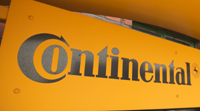 With carefully selected bits and pieces of information and advice, Continental achieved to get a fair amount of attention for the planned spin-off of its powertrain business Vitesco Technologies. But investors who want to buy the stock now have to wait even longer, since Continental´s Executive Board decided in late April that the planned listing of the powertrain business shall no longer take place this year due to ongoing economic uncertainty. The idea behind this decision is that the plans for Vitesco Technologies to become independent thus can be implemented with greater flexibility in response to market conditions.
With carefully selected bits and pieces of information and advice, Continental achieved to get a fair amount of attention for the planned spin-off of its powertrain business Vitesco Technologies. But investors who want to buy the stock now have to wait even longer, since Continental´s Executive Board decided in late April that the planned listing of the powertrain business shall no longer take place this year due to ongoing economic uncertainty. The idea behind this decision is that the plans for Vitesco Technologies to become independent thus can be implemented with greater flexibility in response to market conditions.
The Board also decided to continue preparing the powertrain business for the intended spin-off at a later point in time, thus ensuring that this step can be implemented with the shortest possible lead-in time and great flexibility once the market conditions change.
Consequently, the company no longer pursued the approval of this years´ AGM regarding the planned spin-off. While many shareholders might not have missed this item on the agenda, other COVID-related topics had a direct impact, such as the lowering of the proposed dividend to 3.0 (initial proposal: 4.0) EUR per share and the information about a salary waiver by the Executive Board members and for executives in March 2020. For the members of the Board, the waiver resulted in a reduction of the fix salary for the Months from April through July by 10 percent. This initiative was made in solidarity with employees who have been affected by short-time work and other curtailments.
Steinhoff International Holdings N.V.: Settlement Proposal submitted
Have you ever dreamed of waking up one morning holding a significant stake in a South African company? Such a dream could come true for Steinhoff shareholders. The SDAX company recently surprised with an extra-long ad hoc-release, proposing a settlement to conclude the complex legal claims, and ongoing and pending litigation proceedings, arising from the legacy accounting issues first announced in December 2017.
Even before you learn which proposal the company would like to make, readers are informed about the limited possibilities of the company as a precaution. Does one wonder whether this order is prescribed by the lawyers, or is it the result of a bad conscience? In any case, we learn that any settlement needs to be considered against the background of the financial position of Steinhoff and its significant levels of financial indebtedness. Also, the Group´s underlying businesses have been impacted by COVID 19 which, together with the effect of adverse currency movements, is likely to negatively impact current valuations. What is more, the proposed terms will require financial creditors´ consent.
According to the announcement, approximately 90 separate legal proceedings have been commenced against the company in the Netherlands, Germany, and South Africa, claiming more than 7 bn EUR. If all such claims were ultimately established in the amounts asserted, the net asset value of Steinhoff would fall far short of the amount required to satisfy them in full.
The proposal distinguishes three groups of claims:
- Market purchase claimants shall receive 133 million EUR in cash, plus shares in Pepkor Holdings Limited (the Group´s South African retail subsidiary). Steinhoff estimates that approximately 173 million shares (or 4.6 percent of the total issued share capital of Pepkor) will be transferred to MPC claimants so that the total settlement consideration would amount to 266 million EUR.
- Contractual claims against Steinhoff International Holdings N.V. shall be settler at the same relative recovery rate. Hence, this group shall receive 52 million in cash and 67 million shares in Pepkor (or 1.8 percent of the total issued share capital of Pepkor), resulting in a total settlement consideration of 104 million EUR.
- Contractual claims against Steinhoff International Holdings Proprietary Limited (the former South African holding company of Steinhoff) shall receive a total compensation of 482 million EUR, comprising a cash component of 241 million EUR and 345 million Pepkor shares (or 9.3 percent of the total issued share capital of Pepkor). The number of shares assumes that current employees and managers of Pepkor be entirely paid in the form of Pepkor shares.
Does anyone have an idea of how to carry out a reliable assessment of a retail furniture retailer in den days of COVID 19?
CTS EVENTIM AG & Co. KGaA: What if Disaster strikes twice?
No doubt, the COVID pandemic has hit CTS EVENTIM hard. No show – no ticket sales. This is a simple formula, and the share price trend since mid-February shows that it works. The company had to amend its proposal for the appropriation of profits to the AGM, and the outlook for 2020 was withdrawn.
Everything moved within expectations amidst the current business environment. But in mid-July investors received a wake-up call. The company informed via Ad hoc-release that the Austrian Financial Market Authority FMA prohibited Commerzialbank Mattersburg im Burgenland AG from continuing its entire business operations with immediate effect. The emergency administrative order dated July 14th, 2020 also established a special auditor as an expert supervisor (government commissioner) of the bank. An important consequence of the order is that the bank is currently not allowed to make payments out of deposits.
Ok, from now on shareholders in CTS have heard of this so far little-known banking institution and press their thumbs for more and hopefully better news. This is because Barracuda Holding GmbH, in which a subsidiary of CTS EVENTIM has a 71% shareholding, holds deposits with Commerzialbank Mattersburg of approximately 34 million EUR.
The effects on the accounts of CTS are hard to predict. But the event highlights a particular risk of COVID. Nearly all sectors and industries suffer from the effects of the pandemic. All businesses are hurt - some more, some less. Those hit a little harder are also more vulnerable when unexpected additional challenges pop up. CTS had to take a hit, but that´ should be manageable. However, the event underlines that risk monitoring and good governance are much more important in the days of the pandemic.
DEPFA Bank plc: Equity for Sale
The name DEPFA BANK has long been reminiscent of times long past and forgotten crises. And many remember the surprising move of the company to Ireland shortly before the onset of the financial market crisis. That did not help, though, and in the end, the German taxpayer was nevertheless held responsible for this invoice.
But this is not the end of the story. A first attempt to sell the bank for 320 million EUR failed in 2014. But Reuters reported in October 2019 that Barclays was mandated to find a buyer for DEPFA. The article highlighted the strong capital basis of DEPFA, which is a result of de-risking its portfolio (read: shrinking the business) over the last decade.
The bank is believed to be an attractive target for institutions that can make use of additional capital, including German institutions. However, the bait comes with a catch. According to the Irish Times, the bank is structurally loos making. In February this year the paper quote Moodys: “Given that Depfa´s recurring revenue is insufficient to cover its cost base, we believe that – without outside assistance – Depfa has limited scope to engineer a sustainable turnaround and will therefore likely remain lossmaking in the medium to long term, although there may be potential to reduce losses.”
Equity ratios used to be a strange game for accounting nerds. When they were first introduced, the idea was to set risk limitations. But soon thereafter a race started for particularly creative constructions, creating unhealthy entities more concerned about equity ratios rather than profitability. This development contributed significantly to the financial market crises, and DEPFA BANK was one of the unlucky victims in those days.
But no DEPFA is back on the market. On July 14th, DEPFA BANK informed via an Ad hoc-release that the FMS-Wertpapiermanagement AöR, the German state-owned wind-down agency has announced the launch of the sale process for 100 percent of the registered share capital of DEPFA BANK plc.
People
Pfeiffer Vacuum Technology AG: How to set the Management Board in Motion
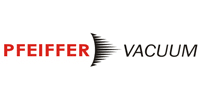 Occasionally, news of board members saying goodbye can give cause for thoughts. Take for example Pfeiffer Vacuum. On June 10th, investors could read: “Supervisory Board adopts new Management Board and expanded management structure and sets the course for a rejuvenated management team with new Chief Executive Officer.” Ups, ones may start to wonder who creates these marketing slogans. Or did this accident only happen because the message was to be distracted with many keywords? We´re still looking, though.
Occasionally, news of board members saying goodbye can give cause for thoughts. Take for example Pfeiffer Vacuum. On June 10th, investors could read: “Supervisory Board adopts new Management Board and expanded management structure and sets the course for a rejuvenated management team with new Chief Executive Officer.” Ups, ones may start to wonder who creates these marketing slogans. Or did this accident only happen because the message was to be distracted with many keywords? We´re still looking, though.
Effective January 1st, 2021 the Management Board of Pfeiffer Vacuum will look slimmer. The new structure takes into consideration the Relationship Agreement with the Busch Group. The new structure only provides for two board members, namely a CEO (who is also the Chairperson of the Management Board) and a COO. The board will be assisted by a Group Executive Committee, which in addition to the members of the Management Board will include in particular the CFO, the Chief Sales Officer, and the CTO.
Unfortunately, the release did not explain why the new structure reflects the agreement. So while we are sitting in the dark here, the release further illuminates the perspective for changes on the Management Board. The Supervisory Board has also appointed Dr. Britta Giesen as a new member of the Management Board as of October 1st, 2020. She is the designated Chairwoman of the Management Board and will take over this function from the current Chairman Dr. Eric Taberlet, who is expected to retire on January 1st, 2021.
Would that be a restructuring-related retirement, after all? And just by the way we learn that the CFO, Ms. Nathalie Benedikt, “currently a member of the Management Board and Chief Financial Officer”, will leave the company by mutual agreement upon the regular termination of her appointment at the end of the year. I love marketing blabla, but not so much in ad hoc-releases. So is she leaving the company by mutual agreement, or is she leaving the company upon the regular termination of her appointment? And while we´re at it, the Chairwoman of the Supervisory Board of Pfeiffer Vacuum and Co-CEO of Busch SE, Ms. Ayla Busch, thanked Ms. Benedikt for her dedication and commitments to Pfeiffer Vacuum over the past three years. Ms. Benedikts´ first term as CFO started in 2013. But we don´t need a CFO on the Management Board, right?
Capital News
Bayer AG: When the Rooster crows on the Manure too early
 What a success. After a long period of bad news flow, Bayer was finally able to present a result that was expected to end the long and expensive disputes related to Glyphosate. Bayer inherited this can of worms with the acquisition of Monsanto. At the time, many investors thought that Bayer had a good understanding of the legal and social problems associated with Monsanto. Given the price paid, the expectation was not completely unfounded. But perhaps wrong, as later developments show.
What a success. After a long period of bad news flow, Bayer was finally able to present a result that was expected to end the long and expensive disputes related to Glyphosate. Bayer inherited this can of worms with the acquisition of Monsanto. At the time, many investors thought that Bayer had a good understanding of the legal and social problems associated with Monsanto. Given the price paid, the expectation was not completely unfounded. But perhaps wrong, as later developments show.
On June 24th, 2020, Bayer announced a series of agreements that should resolve major outstanding Monsanto litigation, including U.S. Roundup ™ product liability litigation. In particular, the Roundup ™ resolution was supposed to bring closure to approximately 75% of the respective litigation, involving approximately 125,000 filed and unfiled claims overall. Bayer intended to make a total payment of 10.1 bn USD to 10.9 bn USD to resolve current and address potential future Roundup ™ litigation. The resolution also provided for a mechanism to resolve potential future claims. The total payment can be broken down in 8.8 bn USD – 9.6 bn USD to resolve the current litigation, and 1.25 bn USD to support a separate class agreement to address potential future litigation.
This was good news for the bond market. For example, we could read on GlobalCapital: “Bayer investors shrug off major settlement with 17.5 bn EUR of demand for new bonds. Bayer, the German life sciences company, enjoyed blow-out demand for its 6 bn EUR multi-tranche bond issue on Wednesday, days after agreeing to pay up to 10.9 bn USD to settle a lawsuit over claims its weedkiller, Roundup, causes cancer.”
Just a week later reality kicked in. The class agreement is subject to approval by Judge Vince Chhabria of the U.S. District Court for the Northern District of California, and the judge might have some concerns. On July 8th Bayer announced that “it is in agreement with counsel representing the proposed Roundup settlement class on their decision to withdraw the pending motion for preliminary approval of the parties´ issue class agreement. The withdrawal will enable the parties to more comprehensively address the questions recently raised by Federal District Court Judge Vince Chhabria of the Northern District of California, who presides over the federal Roundup litigation.”
Deutsche Lufthansa AG: Determined Shareholder worries Politicians
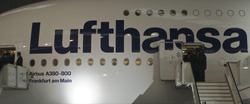 These were exciting days for Lufthansa´s shareholders. The group was no exception in its industry. Official requirements, airport closings, and a serious drop in demand amidst the COVID pandemic led to an existential crisis. As part of the measures to deal with the financial impact, the company and the German government had agreed on a financial rescue package. And as it happens occasionally when you are in a particular hurry to get things done, the shareholders did not receive enough attention.
These were exciting days for Lufthansa´s shareholders. The group was no exception in its industry. Official requirements, airport closings, and a serious drop in demand amidst the COVID pandemic led to an existential crisis. As part of the measures to deal with the financial impact, the company and the German government had agreed on a financial rescue package. And as it happens occasionally when you are in a particular hurry to get things done, the shareholders did not receive enough attention.
Well, at least one shareholder made clear that he did not like this ignorance towards him. Heinz Hermann Thiele, who at the time owned 15% of Lufthansa, demanded a second look at the planned measures. Apart from excited public reactions of uninformed politicians, this led to hectic communication, at the end of which the parties were ultimately able to communicate. After all, this is a kind of result, although one may doubt that the investor acted solely on the entertainment value.
On June 25th, the mood had already calmed down and the EGM approved the capital measures proposed by the Boards. The package provides for stabilization measures and loans of up to 9 bn EUR. The Economic Stabilisation Fund of the Federal Republic of Germany will make convertible silent capital contributions of up to 5.7 bn EUR. It will also establish a 20% stake in the share capital of Deutsche Lufthansa AG by way of a capital increase. The conversion rights of the silent capital can be exercised in case of a takeover bid for Lufthansa and to secure the interest payments on the silent capital contributions, resulting in a further five percent capital increase. The package is supplemented by a loan of up to 3 bn EUR by a group of banks, including KfW.
By the way, a few days ago Lufthansa informed about a reduction of Mr. Thiele´s position in Lufthansa´s equity from 15.52% to 12.42%. But this is just a relative effect, due to the issue of new shares to the Stabilisation Fund.
K+S AG: Adjustment of the Dividend Proposal to maintain the Eligibility for KfW Support
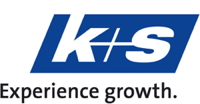 The handling of the effects of the COVID pandemics also places new demands on CFOs and shareholders. A good example is K+S AG, which had to adjust the dividend proposal for 2019 to the legal minimum dividend of 0.04 EUR per share. The previous dividend proposal was 0.15 EUR per share. The decision to adjust the proposal was made to maintain eligibility for a KfW state-secured loan.
The handling of the effects of the COVID pandemics also places new demands on CFOs and shareholders. A good example is K+S AG, which had to adjust the dividend proposal for 2019 to the legal minimum dividend of 0.04 EUR per share. The previous dividend proposal was 0.15 EUR per share. The decision to adjust the proposal was made to maintain eligibility for a KfW state-secured loan.
At first glance, this is a good and convincing argument. The effects of the COVID pandemic are obvious, and a cautious approach is appropriate. This applies all the more when looking at the balance sheet ratios. And the continuing uncertainty on the capital and financial markets about the economic consequences of the crisis is probably not helpful for the planned sale of the American salt business either. But there is light to see at the end of the tunnel. At the AGM, the CFO confirmed that the sales process is going well so far and the company still is expecting to sign a contract in 2020, while the closing will take more time. Shareholders still have to hold their breath for a while.
Aareal Bank AG: Approaching a Separation from its IT-Subsidiary
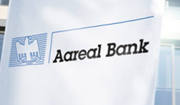 Amidst strong shareholder pressure, the Management Board of Aarela Bank decided to enter into discussions with financial investors on the sale of a significant minority stake in its subsidiary Aareon AG. Aareon is a leading consultancy and IT systems house for the European property industry. The goal of the structured sale process is to join forces with a partner in to strengthen growth prospects and to further expedite its growth program. Aareal Bank intends to remain Aareon´s majority shareholder.
Amidst strong shareholder pressure, the Management Board of Aarela Bank decided to enter into discussions with financial investors on the sale of a significant minority stake in its subsidiary Aareon AG. Aareon is a leading consultancy and IT systems house for the European property industry. The goal of the structured sale process is to join forces with a partner in to strengthen growth prospects and to further expedite its growth program. Aareal Bank intends to remain Aareon´s majority shareholder.
According to the bank, the process should be carried out quickly and without prejudice to the outcome. Besides the commercial aspects of a potential transaction, key criteria will include support for Aareon´s growth strategy, particularly in terms of stepping up M&A activities, and the potential partner´s specific transaction and sector expertise. According to press reports, Aareon should be valued around 0.5 bn EUR. In 2019, Aareon contributed to 37 million EUR to the group result.
At first glance this sounds like a logical step in the right strategic direction to strengthen the long-term perspective for the business. But not every shareholder appreciated this initiative. According to Reuters, the activist hedge fund Teleios Capital called for a dual-track process for both a majority and a minority sale of the software business. Teleios holds a 6.5% stake in the bank. This pressure might prove helpful to speed up the sale process. But will it be enough to encourage the management to expand the target group for the sale?
QUIAGEN N.V.: Good News can be bad News
This is good news for shareholders: On July 13th QUIAGEN announced earnings above prior expectations and improved growth and earnings prospects amidst the growing demand for its products and services due to the COVID pandemic. But perhaps not everybody was happy to learn how strong the business developed in recent months.
Following several months of back-and-forth over a potential acquisition of QUIAGEN, Thermo Fisher finally launched its proposal to acquire QUIAGEN at 39 EUR per share on May 18th, 2020. This proposal valued QUIAGEN at approximately 11.5 bn USD (including the assumption of approximately 1.4 bn USD of net debt). The Managing Board and the Supervisory Board of QUIAGEN unanimously recommended accepting the offer. Interested shareholders could do so until July 17th, 2020, while the additional offer period shall start on July 31st and will end on August 13th. The offer was subject to a minimum acceptance threshold of at least 75% of QUIAGEN´s issued and outstanding ordinary share capital as of the end of the acceptance period.
Sounds good, but not yet good enough. The strong performance and improved outlook of QUIAGEN in recent months encouraged several shareholders to request a higher offer price. And this time Thermo Fisher acted swiftly. On July 16th, the offer price was increased to 43 Euro per share, while the minimum acceptance threshold was lowered from 75% to 66,67%. This sounds better, although it comes with a catch: If the minimum acceptance threshold is not met, Thermo Fisher shall receive a 95 million USD expense reimbursement payment.
ams AG: Succesful Closing of the OSRAM Licht AG Acquisition
It was not only the COVID pandemic that temporarily raised doubts about the success of the ams takeover bid for OSRAM LICHT. It is therefore all the more pleasing to see a positive message in these rather demanding times. And this is such a message: ams announced on July 9th the successful closing of the OSRAM LICHT AG acquisition. The takeover offer has been fully settled today and the offer price paid to the holders of the tendered shares.
Following the closing, ams holds 69% of all shares in OSRAM LICHT (excluding treasury shares) based on the result of the takeover offer and additional purchases equivalent to a transaction value of approximately 2.7 bn EUR. It goes without saying that ams expressed its understanding that it expects to gain representation on the Supervisory Board of ORAM LICHT based on its shareholding and plans to announce further steps towards the integration of the two companies in due course.
But the story is not yet off the table. Only a few days later, ams informed about the issue of 200 million EUR senior notes and an additional 50 million USD senior notes “in connection with the OSRAM LICHT AG” in the second half of July. We better expect further news from this transaction.















